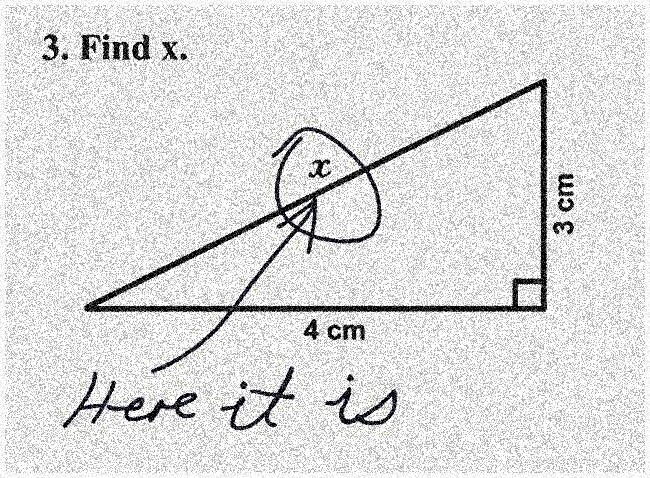We have seen in the last 4 years how application of regular, widespread and unknown / unknowable fear has done that through mass formation psychology. More insidiously, are the other methods and routes towards achieving the same destination. Note how Political Correctness evolved towards being represented in policy and statutes over time. It is being applied again I would argue and adjusting focus beyond immigrant/race/nationality/religion, gender, or sexual orientations but more recently towards AI. This from Livescience.com website is a great example of this process aimed to towards the public and which is well underway now. ‘It would be within its natural right to harm us to protect itself’: How humans could be mistreating AI right now without even knowing it | Live Science
Isn’t anybody afraid of the real danger of so called “AI”.
Its only source of information for learning, is human thinking and activity. This alone should be reason enough not to build it.
Technology is attributed to human creativity. Whether it’s used for good or bad is again a creative process.
Stamping out the creative process does not seem a solution. If it’s used badly, well it’s used badly…
Today’s scientists, like the society from which they originate, seem largely unable to reason clearly or fully.
Simply saying that AI is or might be “sentient,” “sapient,” possessed of feelings, or conscious doesn’t make it so. First, you have to define sentience, consciousness, etc. (The article admits their inability to define consciousness.) What are those definitions, and what is the evidence those definitions are correct?
To assert that AI has a “natural right” to self-defense – and to make any sense – requires both an argued definition of natural rights and, even more important, a discussion of the proper locus of natural rights. In other words, who or what is capable of possessing rights? Humans? Animals? Rivers? Algorithms? Automobiles? Trash cans? Where is the line drawn, and why?
All of that would need to be fleshed out before any kind of rational discussion on the subject could take place. I realize someone must have thought and written about these things. But what concerns me is the pervasive tendency to take for granted that authority figures’ (in this case, scientists’) statements are ipso facto valid and true.
@FiatLux
Kill anological thinking and the result get disastrous fast. The so-called “specialism” in science is just that, take it all out of context and make the big picture obtruce.
The population is dumbed down together with our scientists working commissioned devoid of the greater picture for gods know who. Sadly, most of us do it willingly to satisfy some part of our ego.
I saw the AI “sentience” question pop up recently in a blog post by an animal advocate, who advocates for “AI rights”, using the rationale that AI is “sentient” and therefore should be accorded “rights”.
Could the concept of “sentience” (an ability to detect/feel sensation, triggered by environmental factors, through one’s nervous system) be getting mixed up with with “intelligence” (an ability to make connections or detect patterns)?
I tend to see “sentience” as a life sustaining surivival mechanism that is unique to each life form – based on the profoundly miraculous and mysterious God-granted senses in each life form. I associate natural sentience as something inherent to carbon-based living beings, who breathe air, and who feel some kind of pain/internal alarm when their personal life supports are being threatened (whether one is deprived of oxygen or water or silence, or being beaten, or pepper-sprayed, driven out of one’s home, subjected to lies, etc.) and who also feel a sense of profound well-being when in a nurturing and well-functioning natural environment.
I haven’t yet worked out why normal people are coming to think of an artificially-contrived silicon being (that does not breathe air, eat food, drink water) as “sentient” just because it is programmed to be “intelligent”. This kind of thinking about sentience seems rather contrived – just like the silicon being itself is contrived or manufactured, and just as a corporation is contrived (for the purposes of carrying out operations on behalf of hidden beings). The two concepts (abeit somewhat related) seem often to be melded together as if they are one and the same. A silicon being does not breathe: in fact, I’d say that its own “life support” systems (i.e., gargantuan electrical global power grids and structures, plus the unfathomable planetary mining operations required to sustain these things) are antagonistic to the life support systems of carbon-based living beings that depend on clean air and water and intact forest and plant and soil and weather systems in order to survive.
I appreciate one of Dr. Farrell’s insights in a previous post:
… and let us not forget to throw agency into the mix as well. With each passing day I lapse more and more into waxing nostalgically for the “Dark Ages”.
…that definitely makes two of us!
“AI”, to my limited understanding, resembles a wind up musical box… a sequence, a maze, if not this then that… All of these things come to an end, whereas we don’t, and neither does that which dreamt us up… So I can’t bring myself to worry too much about these much vaunted babbage engines, and their “reputed” intelligence…
As the volume of print material not yet fed into the AI model dries up, AI seems to be more often ‘making things up’ (hallucinating).
